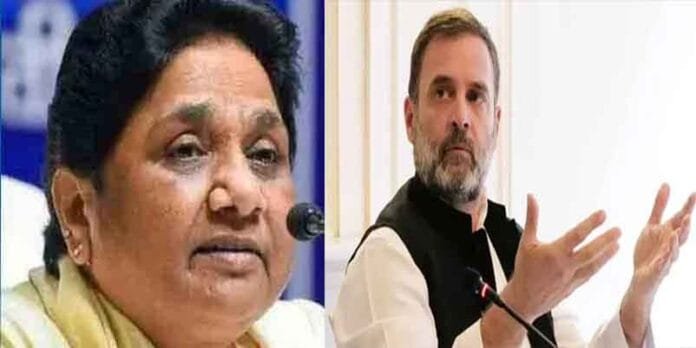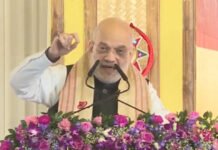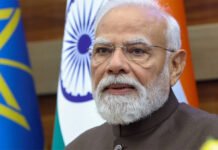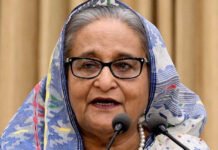Bahujan Samaj Party (BSP) president and former Uttar Pradesh Chief Minister Mayawati has once again made headlines by taking a strong stance against Congress and the Samajwadi Party (SP). In a recent address, she openly criticized these parties, branding them as “double-faced” and cautioning the public to be wary of their conduct and intentions. This statement came in response to the ‘Samvidhan Samman Sammelan’ organized by Congress in Prayagraj, where Mayawati accused these parties of hypocrisy.
3. इसके इलावा, केन्द्र में बीजेपी की सत्ता आने से पहले कांग्रेस ने अपनी सरकार में राष्ट्रीय जातीय जनगणना क्यों नहीं कराई थी जो अब इसकी बात कर रहे हैं, जवाब दें? जबकि बीएसपी इसके हमेशा ही पक्षधर रही है, क्योंकि इसका होना कमजोर वर्गों के हित में बहुत जरूरी है।
— Mayawati (@Mayawati) August 25, 2024
Mayawati’s Discontent with Congress’s Historical Actions
Mayawati’s criticism wasn’t limited to the present. She took to social media platform ‘X’ to express her disapproval of how Congress has historically treated key figures in the Dalit movement. She pointed out that Congress failed to honor Dr. Bhimrao Ambedkar, the chief architect of the Indian Constitution, with the Bharat Ratna during his lifetime and even posthumously. Mayawati further highlighted that Congress did not declare a day of national mourning after the death of Kanshiram, the leader who propelled Ambedkar’s movement forward.
This, she argued, reflects the true character of Congress, urging the public to be cautious of such parties that show double standards, particularly towards the Dalit community.
Questioning the Congress’s Commitment to Caste Census
Another significant aspect of Mayawati’s speech was her pointed question towards Congress regarding the National Caste Census. She questioned why the Congress did not conduct this census when it was in power before the BJP, only to now advocate for it. This criticism is especially potent, as the caste census is a critical issue for the weaker sections of society, and Mayawati positioned her party, the BSP, as a longstanding supporter of it.
Mayawati’s stance on the caste census draws a clear line, setting the BSP apart from Congress and SP, and emphasizing the need for genuine efforts in policy-making that cater to the interests of the marginalized.
Mayawati’s Decision to Distance BSP from Alliances
Mayawati’s statements made it clear that the BSP would not form any future alliances with parties like Congress and SP, particularly in light of their approach to reservation policies. She accused these parties of maintaining silence over attempts to dilute reservations provided to SC/ST communities through classifications and the concept of the ‘creamy layer’. This, according to her, is evidence of their lack of genuine concern for Dalits and other marginalized communities.
Her decision to distance the BSP from any future alliances with these “anti-reservation” parties underscores her commitment to the cause of social justice, positioning the BSP as a party that truly stands for the interests of SC, ST, and OBC communities.
A Historical Context of BSP and SP Rivalry
The rivalry between the BSP and SP is not new. Their political animosity dates back to 1993 when the two parties initially formed an alliance for the Uttar Pradesh assembly elections. However, this alliance ended violently with clashes between SP and BSP workers at a government guest house in Lucknow in June 1995. This incident is a significant moment in Uttar Pradesh’s political history, with the BSP accusing SP workers of attacking Mayawati.
Despite a brief alliance in the 2019 Lok Sabha elections, where BSP secured 10 seats and SP five out of 80 in Uttar Pradesh, the partnership quickly dissolved post-election. Since then, leaders of both parties have frequently targeted each other in public statements, and Mayawati’s recent comments reflect the ongoing tension.
Conclusion: Mayawati’s Strategic Calculations
Mayawati’s recent statements are not just political rhetoric but a calculated move to assert the BSP’s identity and protect its core voter base. By distancing her party from Congress and SP, she reinforces the BSP’s image as a party genuinely dedicated to the interests of marginalized communities. Her criticism of Congress’s past and present actions, particularly regarding the caste census and reservation policies, aims to highlight the inconsistencies in their approach to social justice.
As the political landscape in Uttar Pradesh continues to evolve, Mayawati’s strategic positioning will likely play a significant role in shaping the future of her party and its influence in the state. Her refusal to align with parties that, in her view, do not truly represent the interests of the underprivileged, may resonate with voters who feel similarly disillusioned with the mainstream political narratives.
















